Split Snap Polls Campaign Costs: HDZ Spends HRK 460K, We Can! 241k, Centre 81k
ZAGREB, 27 July 2022 - The financial reports on the costs of the run-up to Split's early election show that the Croatian Democratic Union (HDZ) spent HRK 460,000, the Centre, the winner of the elections, spent HRK 81,000, while, for instance, the We Can! party spent HRK 241,000 but won none of the 31 seats in the city council.
All the 11 slates that ran in the recent snap election were obliged to submit reports on electioneering costs until Tuesday midnight.
The failure to lodge such a report in a timely manner carries a fine ranging from HRK 2,000 to 20,000.
The HDZ party disbursed HRK 460,000 for the costs and received HRK 370,000, so its financial sheet ended in the red by HRK 90,000. The party secured eight seats in the snap election, a seat fewer than before the polls.
The Centre party of Mayor Ivica Puljak reported costs in the amount of HRK 81,000 and receipts in the amount of HRK 68,000. As a result, its financial sheet was also in the red, by HRK 13,000.
The Centre now has 15 seats in the city council, only one seat short of the absolute majority in the council.
The HGS party, led by former mayor Željko Kerum, finished the election race with a deficit of HRK 44,000 as its electioneering costs amounted to HRK 75,000 and its receipts HRK 31,000. It has won two seats in the city council, two fewer than in the previous election.
Bridge now also has two deputies, one fewer than in the council before the snap election. This party's electioneering costs totalled HRK 40,447 and it reported receipts of the same value.
The Homeland Party (DP) has entered the Split City Council for the first time. It now has two seats. It reported that its campaigning costs and receipts were the same, HRK 42,141 each.
The Social Democratic Party (SDP) now has two councillors in the City Council, one fewer than before. It received HRK 36,000 for electioneering costs and spent HRK 55,000, ending the election in the red (-HRK 19,000).
The We Can! party spent HRK 241,130 on the campaigning in the run-up to the early election, and it reported having ensured the same amount to cover the cost. The party did not manage to win any seat in the new council.
The remaining three slates did not manage to enter the council either.
(€1 = HRK 7.51)
For more, check out our politics section.
Ivica Puljak Elected Leader of Centre Party
ZAGREB, 6 Nov 2021 - The mayor of Split, Ivica Puljak, was elected president of the parliamentary Centre party by a vast majority of delegates at an online election convention on Saturday, saying that the party was ready to take responsibility for changing Croatia into a modern, open and tolerant society.
"The confidence that was placed in us by the people of the second-largest city in Croatia shows that they want true change. Everything we are doing in Split is proof that such change is really possible, and the time is slowly becoming ripe for Croatia to discard the deep-rooted political models. Centre will show that it has the strength to spearhead such change," Puljak said.
"My goal is to upgrade Centre into an organization that is fully ready to take responsibility for changing Croatia into an open, modern, and tolerant society which we are striving for," he added.
Puljak said he would continue to be fully devoted to his role as mayor of Split, which he sees as the leader of change in the country, but that as the party leader he would help "others to spread this change across Croatia, at all levels."
Member of Parliament Dalija Orešković was elected political secretary, while Marin Račić, a member of the Rijeka City Council, and Lana Pavić, a political scientist, were elected vice-presidents of the party.
Orešković said that the Centre party wanted to build Croatia as a country based on the rule of law and the principle of equity in which institutions people can trust.
For more on politics, follow TCN's dedicated page.
Davor Nađi Interview: "Fokus Party Not for American-style Economy, Dutch or Scandinavian Preferred"
July 16, 2021 - One month after the local elections in Croatia, the liberal/center Fokus party president shares with TCN reflections of his Zagreb mayor candidacy, details on political views, plans, and hope for the future of Croatia. Learn more about the Fokus party in an exclusive Davor Nađi interview conducted by TCN reporter Ivor Kruljac.
2021 local elections for Croatia concluded back in June, and as with every local election, the majority of political parties whose candidates earned some new positions in the local governments managed to taste both victories and losses are overall happy. Some parties from both left and right political wings celebrated as scientists whose work won the Nobel prize. Even election losses were interpreted as victories, drawing attention to the number of votes, that although they may not score political roles, show growing support. If there is a once in four years occasion when political parties have as much optimism as the Croatian Adriatic has drops of water, it’s the local elections.
Currently in parliamentary opposition, Davor Nađi, president of the Fokus political party, politically declared as center-oriented, also doesn't hide his optimism following the result, but it seems he is a bit more toned down in that excitement than some of his political competitors. Satisfied to see his colleagues from the party keeping their previous positions, and some even selected for new ones, he is expecting the Fokus party to grow in the future while remaining aware of Fokus being new and young on the scene - is careful to say more than he can bargain for. Nađi ran for Zagreb mayor, but in the end, didn't manage to win neither the "main prize" nor a seat in the Zagreb Assembly. He noted, however, that his candidacy helped to attract new Fokus members in Zagreb, but again stating it without grandiose announcements, rather with mild optimism, careful not to step out of the line of realism.
In an e-mail interview, Nađi commented what happened in the Zagreb elections, did NGOs stepped out of line in supporting current mayor Tomislav Tomašević, and what do Fokus voters find attractive in the political party best known for reforming the town of Sveta Nedelja. Are they American-styles libertarians as described by some, and what European politicians are in line with Fokus’s ideas, are just some of the things Nađi revealed in the interview.
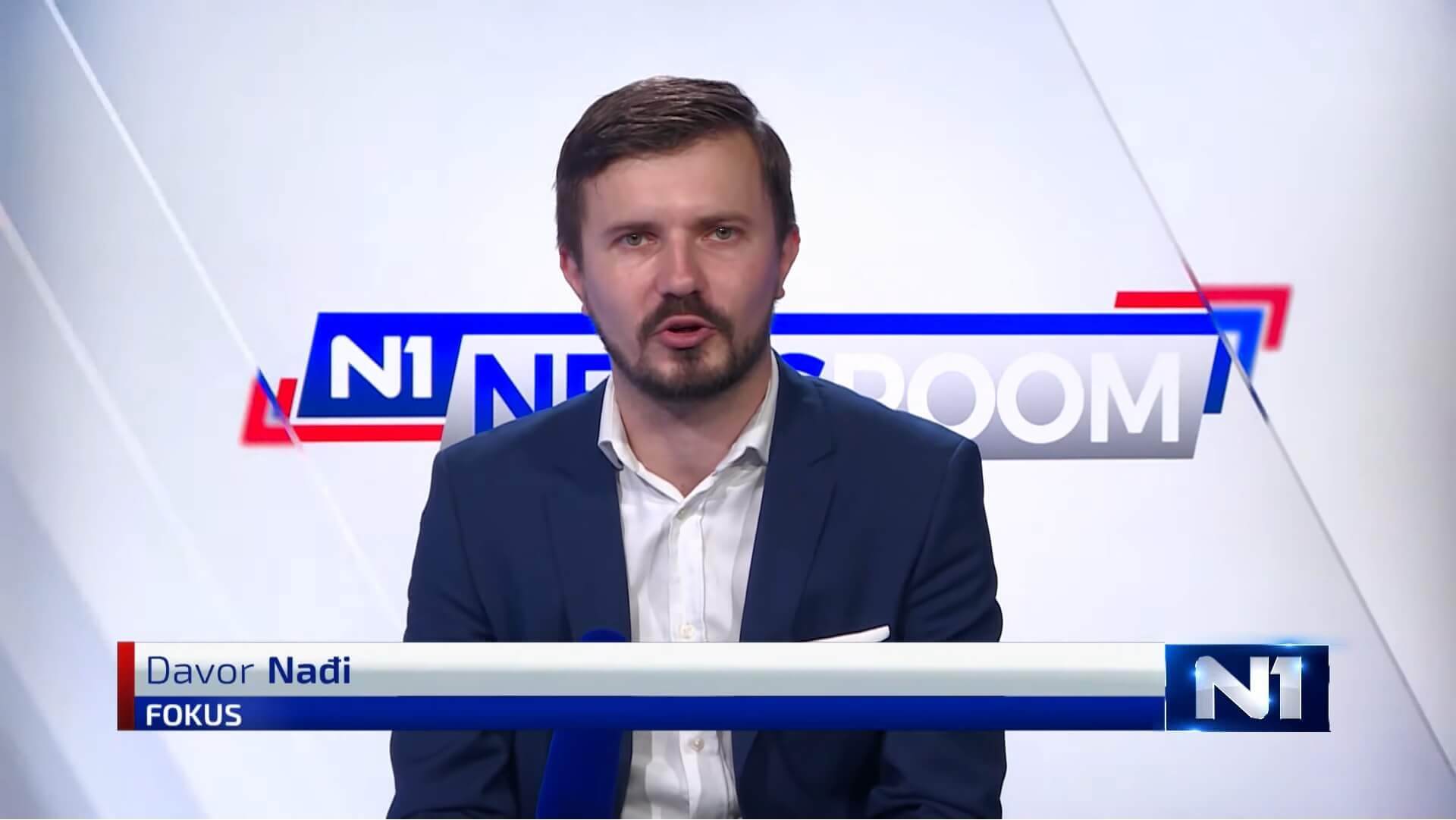
screenshot / N1
You are the president of the Fokus party, and candidates from your party had won in Sv. Nedelja, Samobor, Sv. Ivan Zelina and Dugo Selo. So, your party currently has four mayors. Can you list for our readers where your party had candidates for mayors, assemblies, and counties? How do you comment on „your mayor's" first-month post-election, and what moves would you point out as excellent in that time?
Except for these four cities, we also won in the municipalities of Križ and Pirovac. We ran for mayors and local and regional assemblies mostly in central Croatia (Zagreb and Zagreb county) but also in Čakovec, Slatina, Petrinja, Pirovac. We won 50 members of local and regional assemblies, including the president of assembly in Čakovec.
Most of our mayors were reelected, so they just continued working on projects. However, I would like to point out our new mayor of the city of Samobor, Petra Škrobot, who already contracted procurement of software for transparency of city budget and public procurement, which is one of the flagship policies of the Fokus party.
How would you briefly explain to our readers what your party represents and advocates politically? What politicians, foreign or Croatians are your role models, and why?
We represent the fight for lower taxes and fewer regulations for citizens and the private sector and for a more efficient public sector. That means that we want that people and companies can keep more of the money they earn for themselves and decide on what they want to spend it. For example, that is the only correct way to solve the housing problem – to make sure that people earn and keep more money. Further on, that means that the private sector gets better value for money through better service of the public sector where, in our vision, worst or/and unnecessary public servants would be let go, and the best workers would get a financial reward. We also talk and act on investments in infrastructure, which is important for preparing for future climate change challenges.
I can’t say I have some role models in politics, but I like the politics of Dutch PM regarding the economy because they have a small and efficient public sector that provides good service to their citizens. That allows them to keep their economy very competitive, which results in a better life for their people.
You express deep care for private investments, lowering taxes, and overall creating a better environment for private business and entrepreneurship. But, when talking about entrepreneurs in Croatia, people roll their eyes as many of our famous „entrepreneurs“ are associated with crime, corruption ties to politics, and unfair privatization that ended up in many people losing their job. What is your opinion on these entrepreneurs, such as Todorić or Horvatinčić? How to fix that negative perception of entrepreneurs?
Yes, the private sector is very important to us. We care about entrepreneurs but also about their employees. We also care about the best public servants too.
I think that public opinion on entrepreneurs is changing in a good way because of a new generation of successful entrepreneurs that succeeded in the global market with no connections to the government. Todorić and Horvatinčić are the exact opposite of them and represent everything that is wrong with this country. It’s wrong to call them entrepreneurs because they are a product of crony capitalism. The only cure to fight people like them is an independent and efficient judiciary.
New option for liberals in Croatia
You ran for mayor in Zagreb. The polls didn't give you too much of a chance, but libertarian (classical liberal) oriented site Liberal.hr said that you could be „the biggest surprise of the Zagreb elections“. To tell you the truth, it didn't seem likely you will become a mayor, but I was very surprised you didn't win a seat in the assembly. What went wrong in Zagreb, and how is it possible that the city with the most developed business climate and entrepreneurship (and with a lot of entrepreneurs) didn't reward your entrepreneurship-oriented ideas, at least with the seat in the assembly?
Well, Fokus is a new party, and I’m relatively new in politics, so a lot of people weren’t informed about our program and achievements. Fokus party didn’t exist in Zagreb until this year, while other parties were building their organization for many years, so it was hard to catch up in just a few months period during a partial lockdown. However, even though we didn’t win a seat in the assembly, we achieved some other goals. Now we have a lot of new members, and a strong organization in Zagreb and a lot of people have heard about FOKUS for the first time. Further on, we are the strongest liberal party in Zagreb, and we had better results than a lot of old traditional parties. So I believe that in the future, our support will only grow in Zagreb.
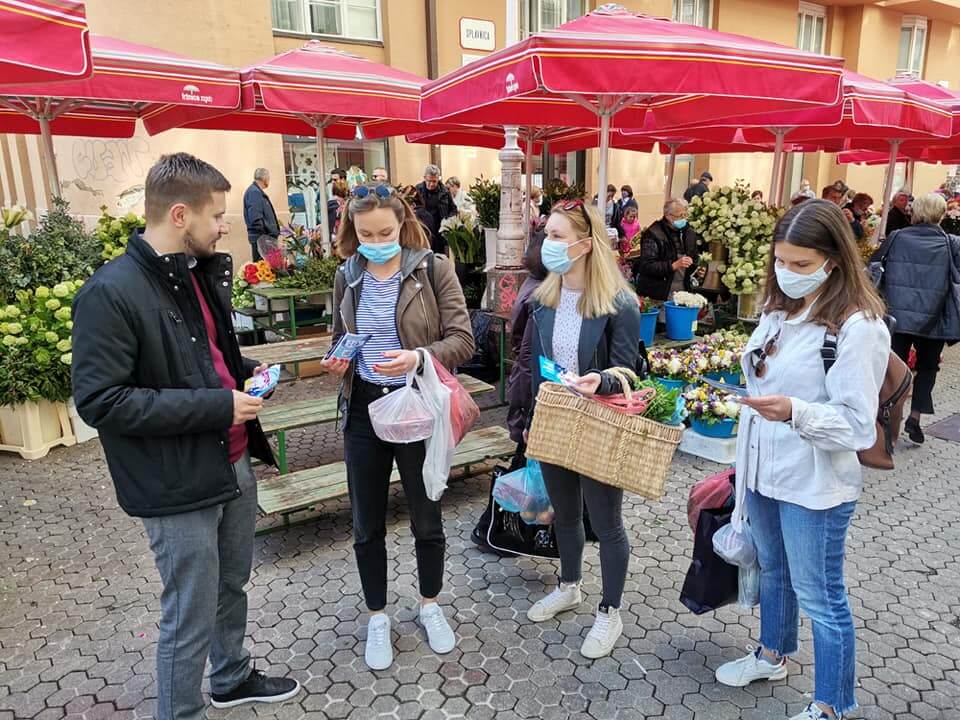
Davor Nađi during his campaign in Zagreb © Davor Nađi
You said on your Facebook site that you didn't receive enough media attention, and indeed you weren't invited to the debates (with the explanation being that only those who earned 5% in polls will be invited). However, you had banners and posters across Zagreb where you talked about how you are experienced to be a mayor because of Sveta Nedelja, where you were a deputy mayor, and the town did receive media attention few years back for amazing changes introduced there. What was your contribution to the transparency of public servants, lowering taxes, and canceling the subtax in Sveta Nedelja as deputy mayor?
I was the designer of those policies with the strong support of mayor Zurovec and the city council, and I was working on these policies from the beginning until the implementation. I’m very proud of that because Sveta Nedelja did the biggest tax cut in Croatia, became the most transparent city in Croatia, and received a reward for the best local economy three years in a row.
You criticized some of the moves by the new Zagreb mayor Tomislav Tomašević. Can you repeat what do you find problematic in his governance so far, but also, is there anything positive, something you would support him in if you made it to the Zagreb assembly?
There are some things that are good, and some are not. I reacted on one occasion, but let's wait a little bit more time before I can comment general impression so far.
However, for our readers who are foreign and didn't have the chance to see your comment in Croatian, can you briefly explain what did you found problematic with Tomašević early on to the point that you had to react publicly?
He stopped most of the public procurement. Even though I understand his concern that there might be corruption problems, that is not the way to solve that problem. That problem should be solved with better process and clear guidance from the mayor to the city administration because if public procurement is stopped for too long, there will be problems for citizens. On the other hand, in a short period of time new mayor will not be able to change much if he doesn’t make the process of public procurement more transparent and efficient.
Far from the US philosophy
Once on N1, you said political parties in Croatia are still pretty socialistic. Since on that occasion you were a guest at N1 regarding Zagreb Reconstruction Bill, did you mean they were socialistic just in that regard or in general? Are Croatians also socialistic too?
They are socialistic in general, and that bill was just the latest example. That orientation of political parties in Croatia resulted in a situation in which an enormous part of the economy depends on the state so we actually have crony capitalism. That sends the wrong message to the people, so people lose self-confidence and think they can’t earn for themselves and their families, and instead, they rely on the state to help them in every aspect of their life. They simply don’t take into account the fact that the state is corrupt and inefficient, which may be because of inadequate financial literacy.
However, it seems to me that the tide is changing with the lead from the local level from cites like Sveta Nedelja and that people are beginning to see the benefits of liberal policies.
When you say the parties are socialistic, some could think this is the heritage of Yugoslavia. However, aside from the communist experiences of South-Eastern Europe, the overall European political culture and tradition goes along the way „yes to democracy, yes to free market, yes to the individual freedoms“ but also „yes to social care, yes to free health, yes to free education, yes to supporting cultural and artistic projects, scientific research, etc“. Many people see Fokus as being against that and wanting to dismantle that European political culture with American political culture, which seems to be notorious in Europe for its health and education system, which as people see it, „is alright if you have cash, but not for the poor“. Are you indeed into „making Croatia American rather than European?“ and if so, how would you address the mentioned sectors of health, education, culture, and science? What about HRT in that context (as the idea of a public TV financed by the state is a European invention in the media landscape)?
Of course, we are not for an American-style economy. We prefer the Dutch or Scandinavian style with high economic freedom and adequate social benefits. Some people don’t understand that “free” health care doesn’t exist. Taxpayers pay for that. And if we think a little bit more about our health care system, do we really have health care that is accessible to the poor? How long are the waiting lists? People pay taxes for health care, and when they need it, then they don’t get it. That is not free health care! Almost the same is for everything else. I believe that vouchers would solve that problem because then even poor people could afford health care service from the private sector, and the public health care system would have to be more efficient and provide better value for money. The same thing is possible with education. HRT should be significantly downsized, and subscriptions decreased with the option to opt-out from their service.
When it comes to the overall Croatian political landscape, Fokus does offer something truly different from other political options, and it seems quite right to expect that Fokus will continue to grow. But, what do you think made Fokus uprise to start in central Croatia, in Sveta Nedelja, Samobor, Dugo Selo, and Sv. Ivan Zelina? Is there something that makes the culture and society in these areas different comparing to the rest of Croatia that they were the first to recognize and give a chance to your program?
Fokus also has a mayor of Pirovac in Dalmatia and president of the city council in Čakovec, members of City council in Slatina, etc, so I wouldn’t say that our policies are only recognized in central Croatia. However, we have better support in parts of Croatia, where fewer people work in the public sector and more in the private sector. That is not surprising since we promote policies that would result in a more efficient public sector and less red tape and taxation for the private sector.
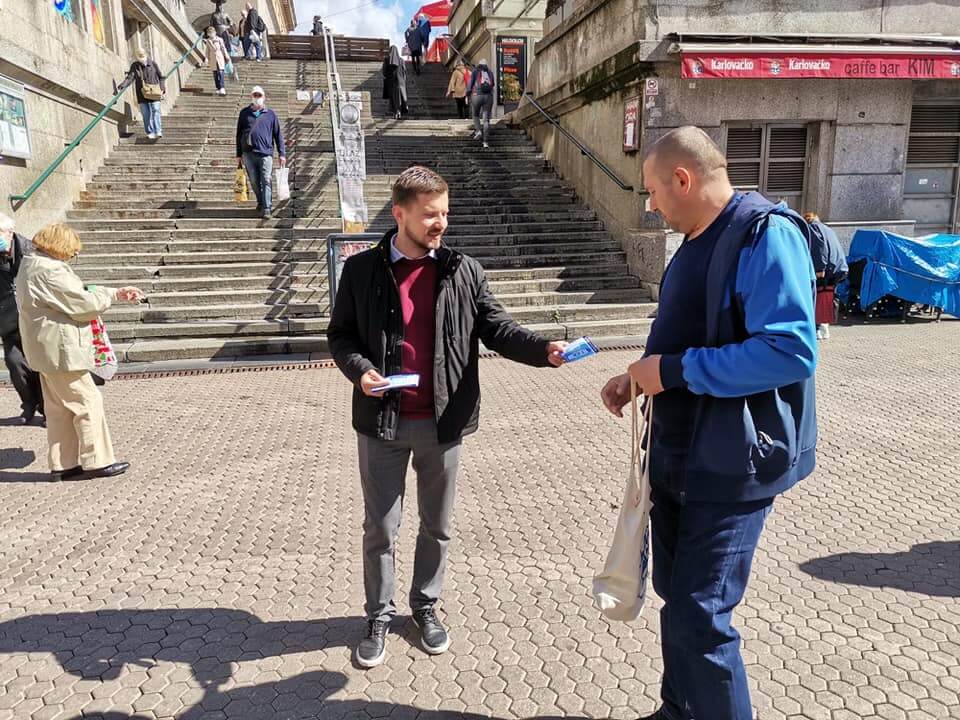 © Davor Nađi
© Davor Nađi
Up next: European elections and Croatian Parliament
On the note of local success, many view local elections as a forecast for what can happen in parliamentary elections. How would you rate your chances on the next parliament elections based on local results?
I’m very optimistic. Fokus has a very good position to grow and to achieve a great result. Fokus is already a success story and we have grown in a number of members in every part of Croatia. I believe that a new government after elections will not be formed without a strong party or coalition from the political center, and if we look at the results of local elections, Fokus is the fourth party by a number of mayors in Croatia. Also, we are the strongest party of the political center in national ratings, so that gives us reason to believe that we can gain even more support from our citizens in the future.
Back to the Zagreb elections. The two main candidates represented Gree-left values and national, conservative, sovereign values. Tomašević not only got support from some of the other European mayors but, just as with Škoro's values, there are plenty of same-minded people in Europe sharing those values. You mentioned your appreciation for the Dutch Prime Minister, but are you as well in contact with like-minded parties and politicians in the EU?
Fokus is a new party, so we still haven’t formed significant international alliances, but we can see ourselves working with other European liberal parties. Of course, the one with the best results is Dutch VVD that is in power on the state level.
But when we talk about the support that Tomašević or some right-wing parties and NGOs in Croatia had in recent years from abroad; I would say that there is a thin line between support and meddling into elections, and I would say that that line was crossed.
But, can we expect that Fokus will try to be in communication with them? Any plans for running on European Parliament elections as a good point to meet with other think-alike politicians in the EU?
I said that we don't have some significant alliances with them. However, we are in contact with some of them. We will see where that will take us. EP elections could be the first opportunity to test eventual cooperation.
And regarding what you said about there being a thin line between support and meddling in elections and how that line was crossed in Zagreb elections by NGOs, is there a risk of entrepreneurs doing the same thing when supporting, either financially or with public influence, certain parties? How can we prevent such meddling legally but yet with respect to the right of political expression to organizations and individuals?
I don’t see the financial support of Croatian entrepreneurs to political parties as a problem. The problem is only if they receive privileged treatment after the election in return for giving financial support. I would go one step further and say that we should welcome donations of private individuals and companies to political parties because that would mean that political parties would be less dependant on public financing. That should be a normal part of the domestic election process. However, if foreign money is included in financing political parties or their leaders, direct or through other channels, then we as a state have a problem.
To conclude, you are MA of the economy, and you talk a lot about economic solutions. Are our economy and business truly the core issues politicians need to address? Additionally, what are your views and the views of Fokus on defense policy, diplomacy, international relations, emigration policy (asylum seekers trying to enter Croatia), Croatian veterans, diaspora, and the ideological, historical disputes among Croatians, which for better or worse seem to often resolve the elections on a parliamentary level?
It would take a much longer conversation to answer all these questions, but I will try to answer in few sentences. Yes, I believe that economy is the most important issue that needs to be addressed because that is the place where value is created and which provides a better life for people and necessary funding for all government programs. Without a strong economy, the state can’t finance defense or social benefits. Unfortunately, you are right that elections are, in the biggest part, decided on other issues that target emotions rather than reason.
When it comes to defense policies, liberals believe that the basic tasks of the state are to provide to their citizen's rule of law and protection from foreign and domestic threats. So we should have adequate defense capabilities. On the other hand, we have no problem financing social benefits to real war veterans, however almost 30 years after the war, there shouldn’t be any new users of these benefits. Regarding international relations, our position is that Croatia should remain an EU and NATO member with strong relationships with the USA and with a clear position that China can’t be our partner until they don’t behave by the same rules like everyone else with the biggest concern regarding human rights issues.
Even though we are a small country, that doesn’t mean we can’t lead by example. It is up to us if we will stay on the bottom of every European statistic table or we will start going up. We have all the resources we need to thrive.
Learn more about Croatian politics and history since 1990 on our TC page.
For more about politics in Croatia, follow TCN's dedicated page.
Highlights of the Week: 5 Big Events in Croatia from April 5-11, 2021
April 11, 2021 - An overview of the big events in Croatia from April 5 to 11, 2021.
The first week after Easter saw Croatia bitter on the tragic death of a 2-year-old girl, followed by a shock of heavy snow fastly coming and fading in Croatia's capital. Dinamo fans were disappointed by the Europa League loss at Maksimir stadium, while Pula is finally starting a big project of connecting its underground tunnels with an important surface site. Citizens of Split saw two candidates coalition together to unify liberal and progressive election bodies.
Highlights of the week: New headmaster of Social Service in Nova Gradiška 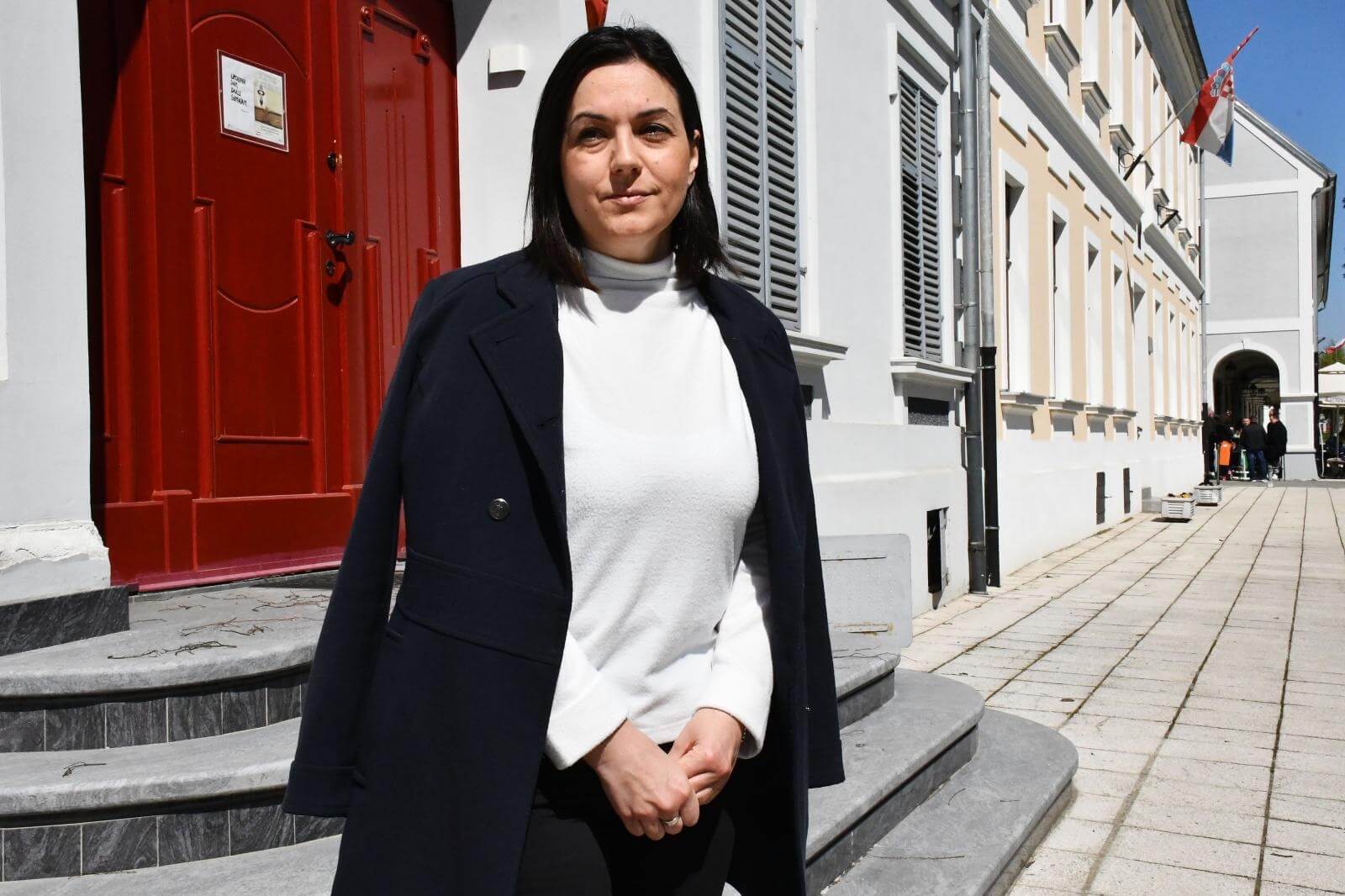
© Ivica Galovic / PIXSELL
Following the tragic death of a 2-year-old girl who was heavily beaten by her mother and neglected by her parents resulted in Marija Jugović taking the position as the new headmaster of Social Welfare Centre Nova Gradiška on Monday. Jugović replaced the former headmaster Branko Medunić, following the controversial decision of returning the girl from her foster family back to her biological parents, who previously neglected and abused her, which ended fatally.
As Večernji List reported, Medunić is still employed in the Centre, and Jugović said on Monday that the investigation by the ministry would show if there were any misconducts in handling the case.
„Medunić is a social worker, and he is currently doing the job according to his occupation“, said Jugović.
Pending the results, Jugović announced lay-offs in the Nova Gradiška Centre. The investigation was expected to be complete by Wednesday.
„It's determined that there were mistakes in the procedure, which was the mistake of the headmaster. We are still waiting for professional findings from Croatian Social Workers chamber and Croatian Psychology Chamber“, said Josip Aladrović, Minister of family and social policies, on Wednesday as a guest On National Croatian Radiotelevision (HRT).
He added that restrictions in the Centre were done immediately based on those findings, and other results are expected to be complete by the end of the week.
Highlights of the week: April snow in Zagreb brought shock and traffic
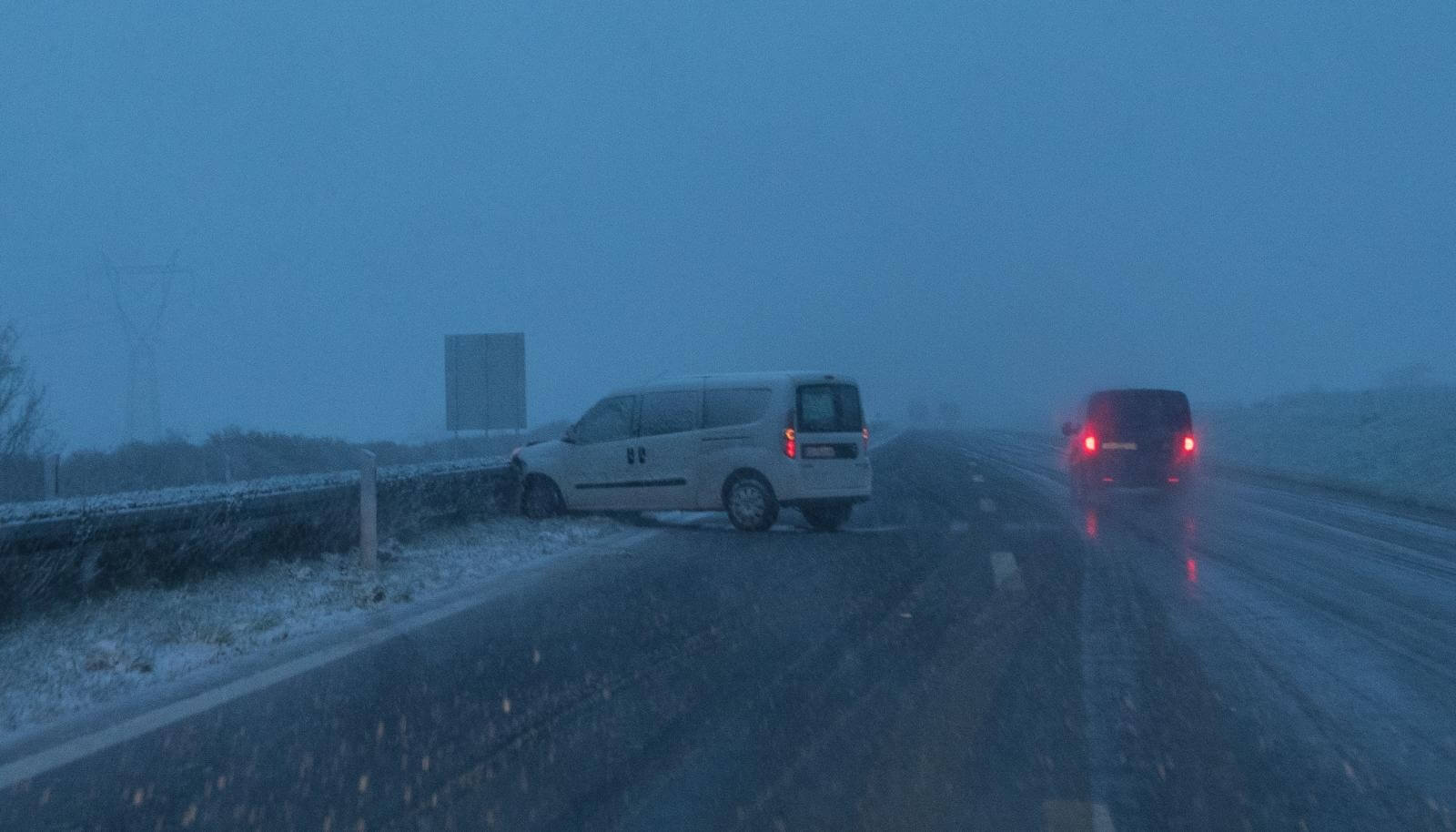
© Bruno Fantulin / PIXSELL
The heavy snow, which was announced but still surprised the citizens of Zagreb thanks to its intensity, caused chaos on Zagreb streets on Tuesday. Traffic was jammed and several accidents occurred. Still, the snow quickly melted away and meteorologists announced warmer weather by the end of the week.
Citizens of Zagreb were in disbelief of such heavy snowfall in early April, a day after it was a little under 20 degrees Celsius.
Highlights of the week: Ivica Puljak and Bojan Ivošević competing together in Split local elections
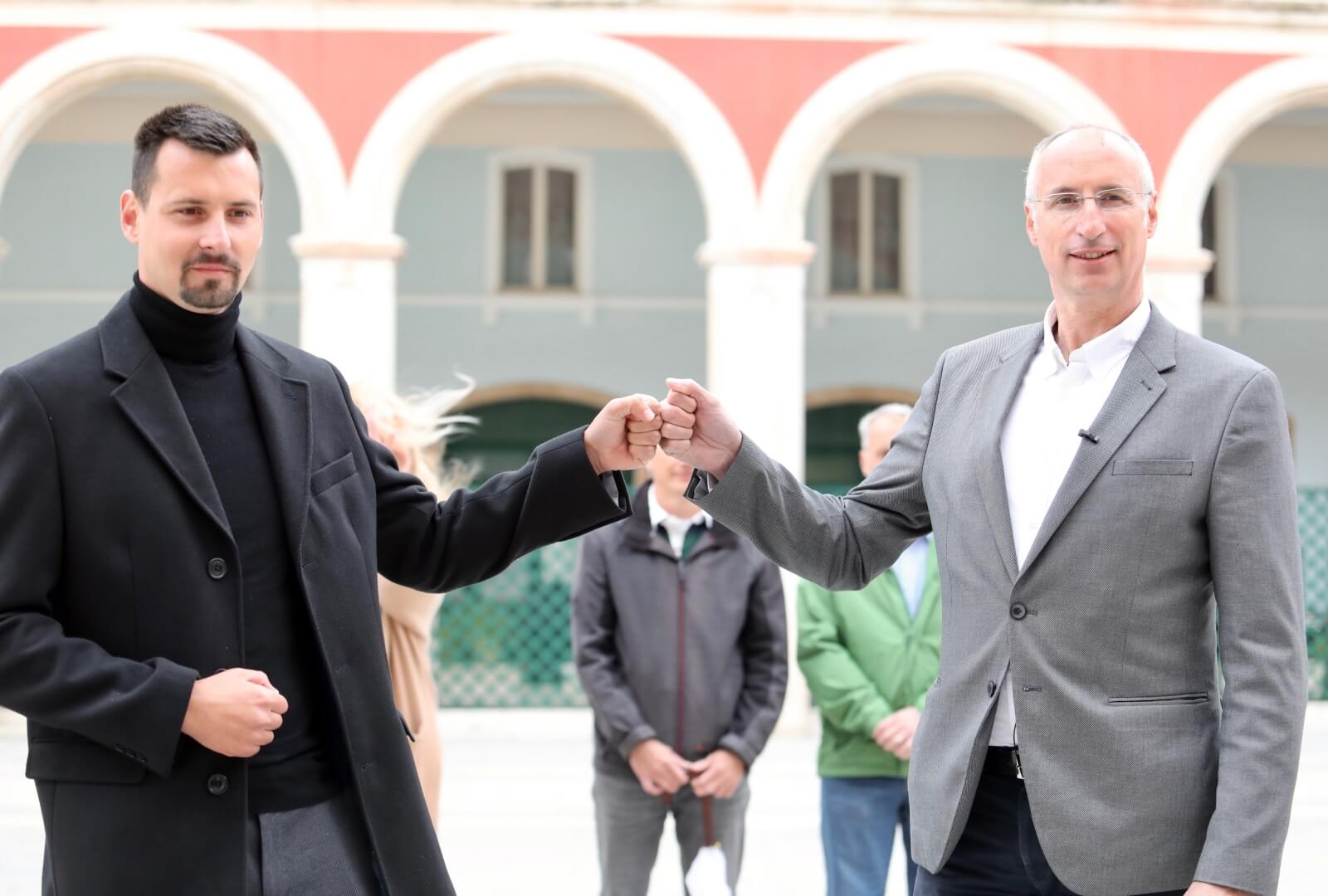
© Ivo Cagalj / PIXSELL
Mayoral candidate of Centre Party Ivica will compete in the upcoming local elections for Split Mayor with the independent candidate Bojan Ivošević who aims to be his vice-mayor. As Večernji List reported on Tuesday, the pair said this decision was easy for them as neither one had to betray their beliefs when agreeing to this collaboration.
„In this election, the civil, progressive Split we represent is waking up like never before. We united our teams, Split has a chance it didn't have in decades, and if we don't use it, we won't get another opportunity for four years, maybe even longer. We have to take this chance“, said Ivica Poljak.
Bojan Ivošević is confident they will win elections and „return freedom to the citizens of Split and end trading authority in Split“.
Highlights of the week: Construction of connecting Kaštel fort with underground tunnels ongoing in Pula
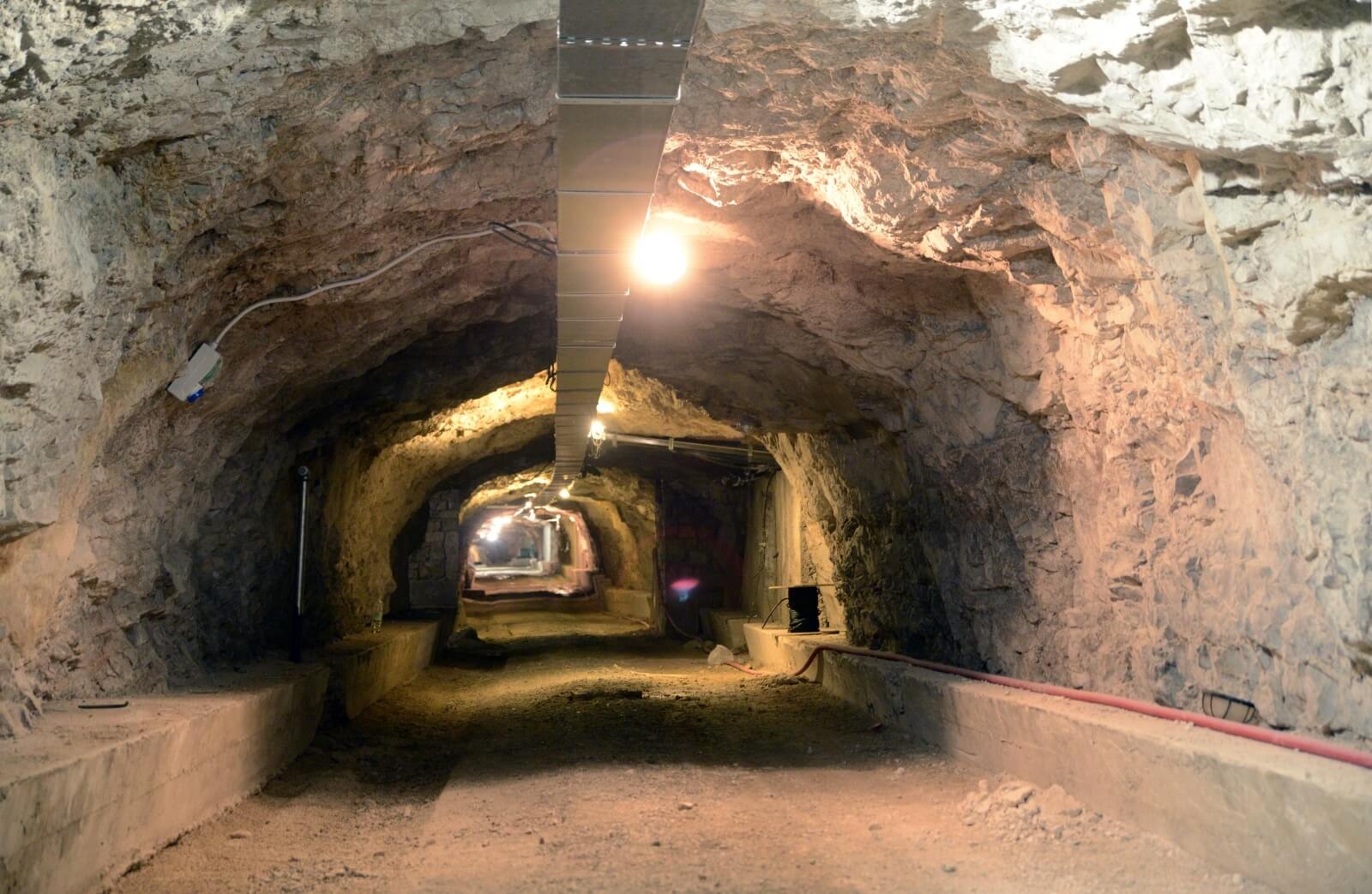
© Sasa Miljevic / PIXSELL
One of the most interesting tourist projects this year is taking place in Pula. Fort Kaštel is being connected with a network of underground tunnels that date back from the Austro-Hungarian times when Pula was the main military port. After the project was announced as early as 2019, the shaft where there will be a tourist elevator that will connect the fort with tunnels was finally been pierced last Friday.
Highlights of the week: Dinamo defeated by Villareal
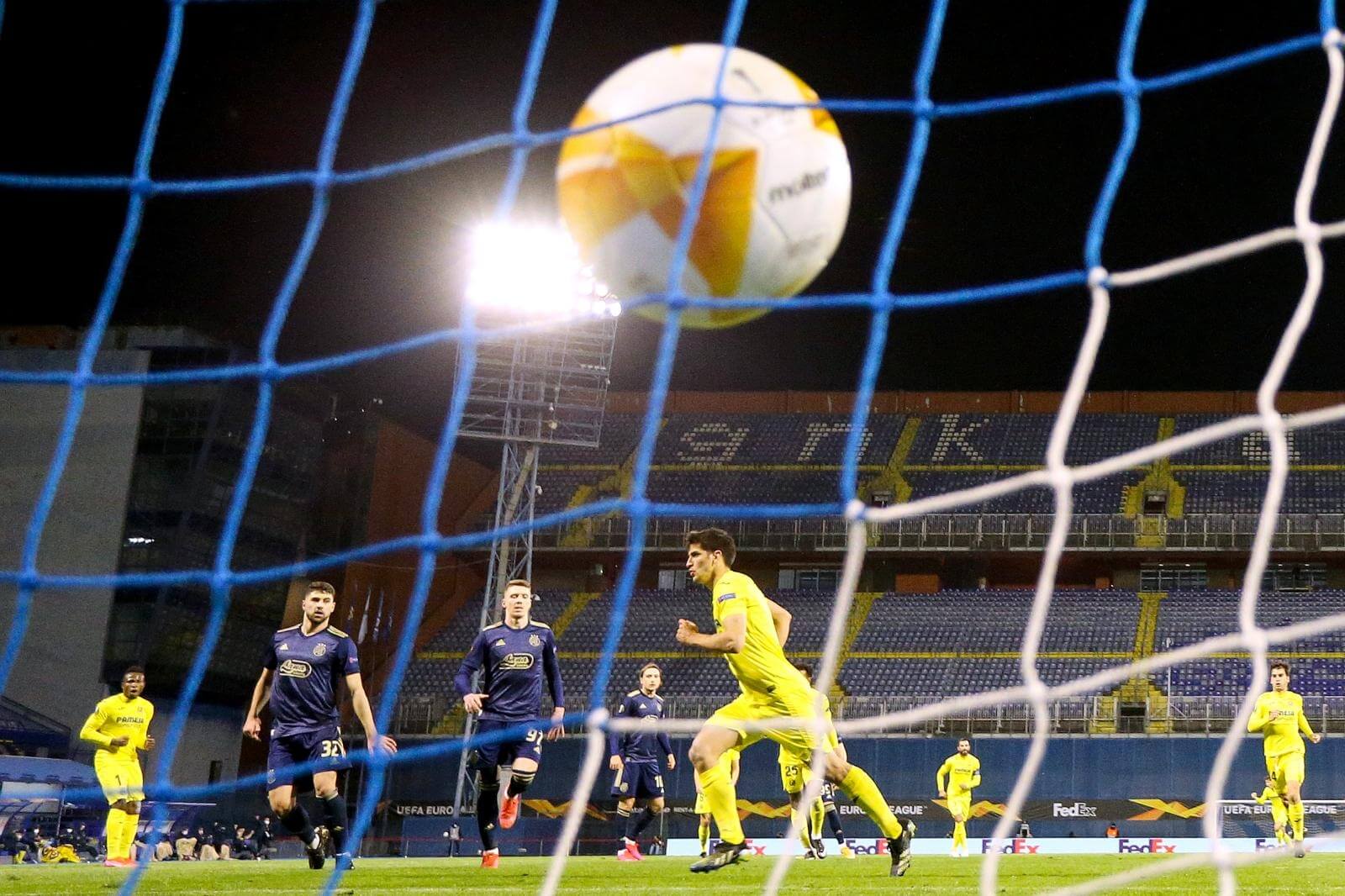
© Goran Stanzl / PIXSELL
After the brilliant victory against Tottenham, Dinamo's luck and skill took a blow in the clash with Villareal on Thursday.
Despite Dinamo handling well against the first attempt of Villareal and few risky shots aimed at Zagreb's gate, it all went well until the very end of half-time when Moreno scored for the Spanish club, taking advantage of a penalty Dinamo received for Theophile's handball.
Dinamo didn't manage to level the result or turnover the game but reduced the loss to the lowest possible outcome. Whether Dinamo is able to come on top against Villareal will be known next Thursday when they visit Villareal in Spain.
For more about politics in Croatia, follow TCN's dedicated page.
To read more about sport in Croatia, follow TCN's dedicated page.
To follow all news from Croatia, subscribe to our newsletter.
Gov't Rep Accepts Amendments By HDZ Party Group to Local Elections Bill
ZAGREB, 9 April (Hina) - A government representative on Friday accepted amendments by the ruling HDZ party group to a bill on local elections which ease previously proposed stricter rules for the nomination of candidates in elections and reasons for the termination of a local official's term.
A regulation has been eased under which a person with a final court verdict sentencing them to a prison term of at least six months or whose verdict has been changed to community service and a conditional verdict will be banned from running in elections, starting already with the May 16 local election.
The HDZ parliamentary group proposed that the ban should not apply to persons sentenced to prison for an unintentional crime, if their sentence has been changed to community service or a conditional sentence.
Also accepted were amendments that relax reasons for the termination of the term of a member of a representative body, municipal head, mayor and county head and their deputies.
If those officials have committed an unintentional crime and have been sentenced to prison but their sentence has been changed to community service or a conditional sentence, the terms of those officials will not cease, government representative Sanjin Rukavina said.
He did not accept Social Democrat MP Arsen Bauk's amendment under which those officials' terms would end also in case the party which has nominated them and on whose slates they have been elected has been given a final court verdict for an offence.
The government partially accepted amendments by the SDP, GLAS and Centre party groups under which the term of a member of a representative body, municipal head, mayor and county head stops on the day when they deregister their residence in their local government unit.
For more about politics in Croatia, follow TCN's dedicated page.
Parl. Parties Endorse Ratification of Classified Information Agreement With Spain
ZAGREB, 12 March, 2021 - Croatian parliamentary parties on Friday endorsed the proposal to ratify the Agreement on Mutual Protection of Classified Information between the governments of Croatia and Spain.
During the discussion, Zvonimir Troskot (Bridge) noted that Croatia and Spain had had good bilateral relations since the 1990s, sharing the same principles and goals.
"Both countries are facing the same challenges - migration, the fight against terrorism, climate change, Spanish companies are already present on our market, so why are we ratifying this agreement only now?" Troskot asked.
Juro Martinović, State Secretary at the Ministry of Justice and Administration, said that "there is nothing spectacularly new" in the Agreement. "States always regulate such matters. Under international law, Croatia is a successor to many agreements concluded by (former Yugoslavia)," he added.
Martinović said that the Agreement had been signed on 15 December 2020 and that it established a legal framework for the protection of classified information that is generated or exchanged between the parties, and designated competent authorities for the implementation of the Agreement. The Agreement also determines equivalent classification levels, national measures to protect classified information and mechanisms for transmission of such information.
Independent MP Marijana Petir asked Martinović if Croatia had similar agreements with other EU countries and whether there had been any violations of those agreements, to which he said that he had no knowledge of any violations.
Ivan Budalić of the ruling Croatian Democratic Union (HDZ) said that Croatia had similar agreements with many countries, including Austria, Bulgaria, the Czech Republic, France, Hungary, Sweden and Italy.
Dalija Orešković (Centre party) was interested to know who had decided on concluding the Agreement, who had appointed the delegation and whether the President of the Republic was involved in the process, to which Martinović said that the Agreement enters into force after it is signed by the President of the Republic and published in the Official Gazette and the two governments exchange notes.
For more about politics in Croatia, follow TCN's dedicated page.
Centre for Dissolving COVID Response Team, Forming New One in Parliament
ZAGREB, November 28, 2020 - The Centre party on Saturday proposed dissolving what it called the ruling HDZ's national COVID response team and the establishment of a new advisory body by a two-thirds majority in parliament.
Speaking at an online press conference, the opposition party's co-president Dalija Oreskovic said people no longer trusted the response team because of "its inconsistent, incompetent and politicised measures."
The team "which lost its authority and credibility because of its oversights must be dissolved," she added.
Oreskovic said the time had come for top state officials to act statesmanly and nationally.
The party called on President Zoran Milanovic and Prime Minister Andrej Plenkovic to sit at the table and show they were willing to talk, and on Plenkovic to sit at the table with the parliamentary majority as well as the opposition to find a solution.
Oreskovic said Centre was proposing the establishment of a response team of national unity, adding that only a team which did not comprise members of only one party and laws adopted by consensus could help restore trust.
Trust in those conceiving measures is the main tool for successfully fighting the coronavirus crisis, she said.
That body would comprise experts from all relevant fields chosen in line with expert criteria, not party affiliation, and their key decisions would be communicated by the prime minister, not the team's members, Oreskovic said, adding that before parliament voted on the new response team, it was necessary to adopt a law which would allow it.
Centre co-president Marijana Puljak said Croatia was in a deep recession and that the brunt of the economic crisis fell on businesses which, she added, the government treated as enemies, not partners.
She said the response team's measures were being changed by the week and that, as a result, entrepreneurs could not remain in business.
Puljak said the restrictions should not create a gap between the public and private sectors, and that "we should all form a single viable sector which would share the burden of the crisis."
She said the compensatory measures to date focused on job retention, leaving out expenses for rent, utilities and interest on loans, adding that it was necessary to urgently cut business costs, taxes and parafiscal levies.
Puljak said compensation should be conceived for the hospitality sector given that bars and restaurants were closed for the next three weeks, adding that local government should help.
Centre co-president Dario Carev said the national COVID response team was increasingly used to score political points and that the growing distrust in it resulted in citizens acting relaxed about COVID-19.
Instead of being an advisory tool in the fight against the epidemic, the response team has become a mask on the government's political face, he said, adding that Centre "won't keep quiet about the bad scenarios and even worse justifications being given these days by a team which has lost credibility and expertise."
Centre Party Says Undeclared Lockdown in Force in Croatia
ZAGREB, November 21, 2020 - One of the Centre party leaders, Dalija Oreskovic, said on Saturday that there was a state of undeclared lockdown in Croatia.
That way, she said, the government is avoiding its responsibility to give financial support to businesses that cannot operate due to the coronavirus crisis.
"Examples of arrogance, which show that there are double standards for epidemiological measures, just as for anything else in Croatia, started already during the summer. There is one set of rules for the HDZ and their privileged categories of people and events, and another one for us, less important mortals," Oreskovic told a news conference.
Coronavirus under control yesterday, today it's a plague we are to blame for
"Coronavirus was under control by the national COVID-19 response team yesterday, while today it is a plague we ourselves are to blame for. Tomorrow, when the HDZ holds intraparty elections, the virus will be laughed at, but the day after we will be admonished for being responsible for its explosion," said Oreskovic.
She noted that her party was not a proponent of conspiracy theories or disregard for science, calling on citizens to be twice as responsible as asked of them by the national COVID-19 response team, which she described as politicised.
"One should remember, when any next election is held, who are those who treat citizens as fools with whose lives they dare play on the verge of an undeclared lockdown in which all rights and credit will be theirs and all responsibility and damage ours," said Oreskovic.


